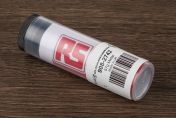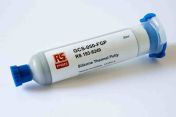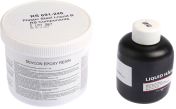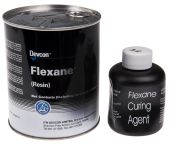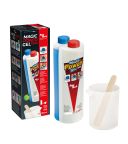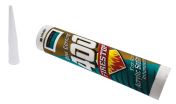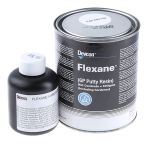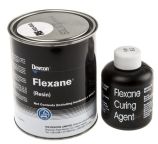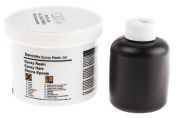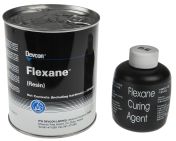Fillers & Putties
Fillers and putties are essential tools for filling gaps, imperfections and cracks to create a smooth surface for painting, decorating or to reinforce surfaces and seal leaks.
Types of filler & putty
Epoxy putty is a 2 part compound of a clay-like consistency which is quick-drying, extremely tough and durable with exceptional adhesion. Unlike other fillers, epoxy putty can be moulded into any shape you require. Once cured the filler can be drilled, tapped, machined, stained and painted and is a versatile and cost effective way of carrying out repairs. There are many advantages of using an epoxy putty, as it benefits from excellent moisture and chemical resistance, and is impact resistant. The putty has increased mechanical and fatigue strength and good electrical properties, and there is low shrink during cure. Commonly supplied in tub or stick (for metal epoxy putty) form.
Firestop putty is a form of filler that can be easily moulded into a firestop to seal holes and gaps in openings or complex fire safety systems. The filler should be mouldable and conformable to ensure the seal can offer insulation against fire and smoke in a variety of environments. Firestop Putty can be used to restore the original fire rating for specific penetrations in fire rated walls or floors, to seal connection joints between different construction materials and to aid mechanically fixing and insulating interior and exterior window frames and entrance door linings.
Plumbers putties are low cost, soft pliable sealing compounds used to make watertight seals in plumbing, particularly in sink fixtures and drains. It can be easily removed if it needs to be replaced. It is not an adhesive, which means it is a better choice than caulk. It is more pliable than silicone and is denser so is a better filler for wider gaps. These are most commonly used when fitting new fixtures or replacing older ones or as a sealant to repair a leak.
Urethane liquids are pourable rubber compounds with varying flexibility. These sealants have a similar viscosity to water and are both abrasion resistant and noise reducing. Urethane liquids are typically found in the automotive industry. They are used for part encapsulation, rigid moulding and in the lining of process equipment, and are also used in the construction industry in the protection of equipment surfaces against corrosion and abrasion.
